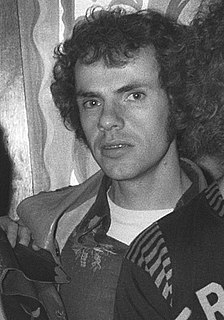A Quote by Werner Herzog
There's happens to be a volcano in the vicinity and there's some talk about a volcano as well, so that's the title Salt and Fire
Related Quotes
In the communist revolution in North Korea, when they threw out the Japanese occupiers, they claimed the power in the dynamic of this volcano for their revolution, saying that this is at the center of the dynamics of our revolution. Everything that you encounter - you don't have, for example, any advertisements, you don't have anything like that anywhere in the country - if you see anything it would be propaganda, and propaganda always inevitably comes back to the volcano. It's always including the volcano. You see the new leader and standing behind him you see the volcano.
Well, it had to be about the stories and the people who live under the volcano, what kind of new gods do they create? What sort of demons? And of course North Korea falls clearly into this category since the socialist revolution at the end of the Second World War. Somehow they adopted the myth of the power and dynamics of their volcano.
I think when people think of Pompeii, they think it was just destroyed by the volcano. Yes, it was the eruption of the volcano that eventually caused the pyroclastic surge that swept over Pompeii and destroyed it for good. But also, they had to face the effects of a very extreme earthquake and a tidal wave that swept in from the Bay of Naples.
Three of the four elements are shared by all creatures, but fire was a gift to humans alone. Smoking cigarettes is as intimate as we can become with fire without immediate excruciation. Every smoker is an embodiment of Prometheus, stealing fire from the gods and bringing it on back home. We smoke to capture the power of the sun, to pacify Hell, to identify with the primordial spark, to feed on the marrow of the volcano. It’s not the tobacco we’re after but the fire. When we smoke, we are performing a version of the fire dance, a ritual as ancient as lightning.
Salt is a powerful symbol in Haiti, as elsewhere. Salt of the earth, for example is an American phrase. In Haiti, myth and legend has it that if you are turned into a zombie, if someone gives you a taste of salt, then you can come back to life. And in the life of the fishermen, there are so many little things about salt that I wanted to incorporate. The salt in the air. The crackling of salt in the fire. There's all this damage, this peeling of the fishing boats from the sea salt. But there is also healing from it, sea baths that are supposed to heal all kinds of aches and wounds.

































